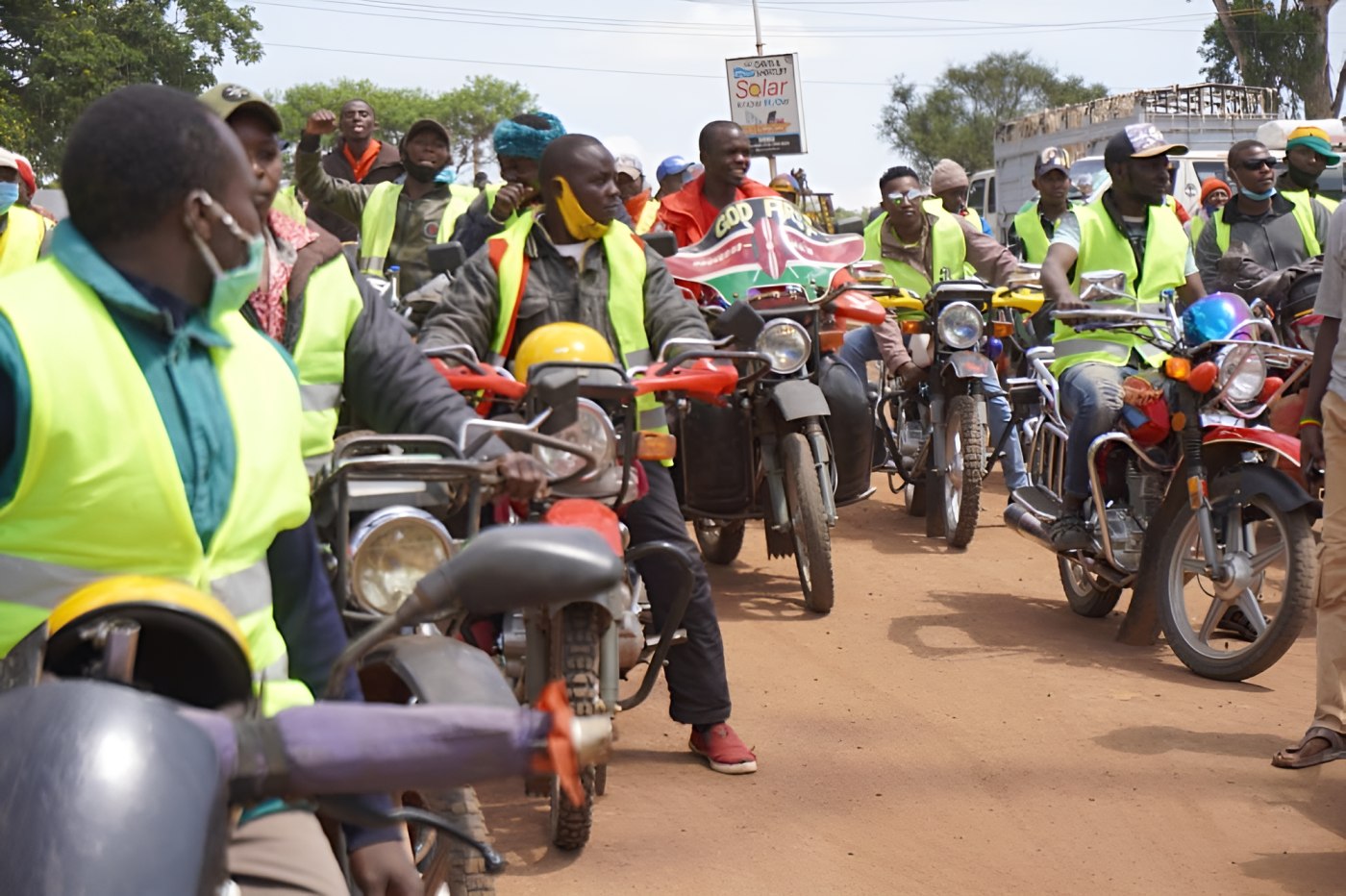Boda Boda sector now a Sh660 billion economic powerhouse

The report, titled The Booming Boda Boda Sector, shows that the sector now contributes 4.4% to Kenya’s GDP in 2025, up from 3.4% recorded the previous year.
Kenya’s fast-growing boda boda industry has expanded its contribution to the country’s economy, now accounting for Sh660 billion annually, according to a new report that highlights both its rising value and urgent need for structured reforms.
The report, titled The Booming Boda Boda Sector, shows that the sector now contributes 4.4% to Kenya’s GDP in 2025, up from 3.4% recorded the previous year.
It reveals how this growth has transformed the industry into a major part of the country's economic structure, supporting millions of livelihoods and playing a key role in transport.
With more than two million licensed riders actively working across the country, the sector generates an average of Sh1,100 daily per rider.
This translates to Sh60 billion annually in fuel taxes and another Sh21 billion in licensing fees, making it one of the largest informal revenue sources in the country.
Despite these gains, the sector remains largely unstructured and continues to face serious issues, including frequent road accidents, insecurity, and a lack of clear regulation.
Stakeholders are increasingly concerned that without reforms, the industry may struggle to maintain its positive economic trajectory.
Digital Financial Services Association of Kenya (DFSK) Chair Kevin Mutiso said policy gaps and insurance laws are making the environment difficult for proper growth.
"The insurance sector is limited because of the Third Party Liability Act. It essentially says that each incident that a boda, or anyone who has third-party liability, has an infinite number of claims can be made on one incident," said Mutiso.
He explained that this discourages insurance companies from offering coverage.
"Why would an underwriter take that risk? So we need to innovate. And this is where government and the insurance sector need to come together and figure out how do we make this ecosystem work."
Watu Credit’s Head of Commercial Chris Rumenda added that the industry needs to focus on long-term changes that promote cleaner technology and environmental sustainability.
He said the report opens discussions about the future of electric motorcycles and how to make them a practical choice for riders.
"It also points to the importance of unity among all players in the sector to ensure real and lasting change," Rumenda noted.
The report, which was prepared in collaboration with Viffa Consult, Watu Credit, Mogo and the Bodaboda Association of Kenya, revealed that 67% of riders said owning their bikes gave them financial stability.
The remaining 33% said personal safety improved when they had ownership.
However, affordability remains a barrier for many riders who still depend on daily or weekly payment plans to use motorbikes.
According to Viffa Consult Managing Director Victor Otieno-Agola, most riders cannot afford to buy their own bikes due to financing problems.
"The sector supports over two million jobs, yet many riders still struggle with ownership due to high costs and lack of financing," said Otieno-Agola.
He further warned that high interest rates, expensive insurance premiums, and poor financial understanding continue to limit the ability of riders to access affordable credit.
"For the sector to reach its full potential, collaborative action is needed from all stakeholders, operators, financiers, policymakers, and manufacturers. Improving access to credit, enhancing safety, and embracing sustainable practices will be key to driving continued growth," added Otieno-Agola.
